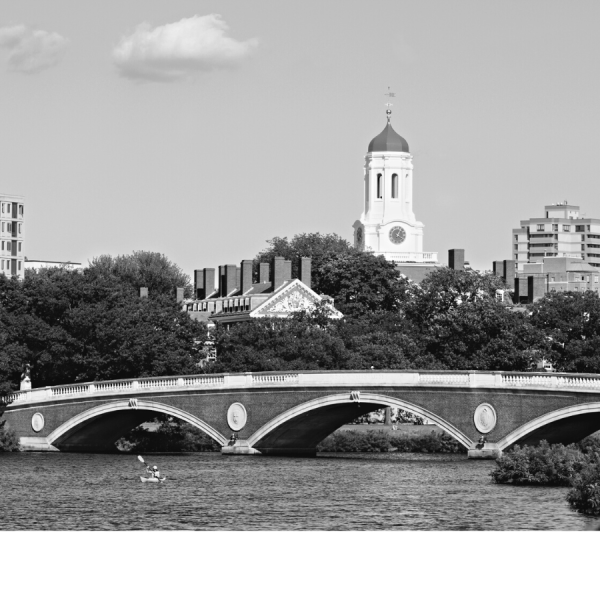Mar 07, 2024
New Report Highlights Significant Progress of Collaborative, Multi-Sector Effort to Reduce Youth and Young Adult Homelessness in Washington State

Showcases Washington as a national leader in the field, spotlighting promising solutions and the power of public-private partnership to address persistent challenges and gaps
SEATTLE, WA – A new report released by the Office of Homeless Youth and A Way Home Washington details significant strides in addressing unaccompanied youth and young adult homelessness (YYA) in Washington state since a collaborative, multi-sector, statewide effort was launched in 2016.
“Yes to Yes” Washington State: Unaccompanied Youth and Young Adult Homelessness Landscape Scan, funded by the Raikes Foundation and the Schultz Family Foundation, pairs comprehensive data analysis with perspectives from more than 100 young people with lived experience, service providers, and other stakeholders across the state. The report presents a roadmap and a vision for Washington state where unstably housed young people can receive the help they need promptly within their community.
There have been remarkable achievements including the near complete closure of the geographic service gap identified in 2016 as well as solutions showing promising results such as flexible diversion funds and closer partnerships with schools. The findings show that even when faced with a problem as complex and dynamic as YYA homelessness, progress can be made with focused funding, attention, and public-private partnerships that provide capacity for innovation.
Key findings include
- 40% reduction in unaccompanied youth and young adult homelessness from 2016-2022
- 75% of youth and young adults permanently housed in 2020 retained stable housing two years later
- 15,338 unaccompanied YYA accessed the homelessness system in 2022
- 50% of the YYA who accessed the homelessness system in 2022 were Black, Indigenous, and People of Color (BIPOC)
- Almost 1 in 10 were Lesbian, Gay, Bisexual, Questioning, and other (LGBQ+). However, this is likely an undercount because most sexual orientation data were unknown
- More than one-third of YYA experiencing homelessness were disabled
- More than 1 in 10 were pregnant or parenting
The report shows that while youth homelessness is an urgent crisis, it is a solvable problem. Since the state assembled a broad coalition of community leaders and youth with lived experience in 2016 to develop an integrated, consistent statewide approach, much has been learned about promising solutions. By putting young people at the center, focusing on prevention, collecting better data, investing in creative solutions such as cash assistance, working with schools, and intervening earlier to meet young people’s and family’s needs, positive progress is being made. Likewise, the state has seen significant strides disrupting the pipeline of youth exiting the foster care, behavioral health, and juvenile justice systems into homelessness over the past four years.
Recognizing the work to address YYA homelessness is far from done, the report is transparent about persistent challenges and gaps —especially in rural communities—where unaccompanied YYA continue to struggle to find safe housing and shelter, particularly youth under 18 years old, LGBTQIA2S+, BIPOC, and pregnant/parenting young people.
This report delves into the authentic experiences of affected young people and reveals a narrative often overshadowed by numbers alone. It should become a vital resource for policymakers, advocates, and individuals dedicated to addressing youth and young adult homelessness.
Quotes
“Washington’s youth have limitless potential. Unfortunately, due to circumstances often beyond their control, too many young people have fallen into homelessness or are at risk of becoming homeless. The good news is that with focused funding, attention and multi-sector partnership, we are making progress. Since establishing the Office of Homeless Youth and adopting a coordinated approach that centers the needs of young people we have seen a significant reduction in youth homelessness in our state. There is much more to be done, but this report shows that by working together, brighter futures are possible for all young people in our state.”
– First Lady Trudi Inslee
“This report serves as a comprehensive reflection of the strides made since the last landscape scan in 2016. The journey, marked by significant progress and collaborative efforts, paints a vivid picture of Washington’s commitment to creating a more supportive and inclusive environment for its young people. From the inception of the Anchor Communities to the first-in-the-nation Homeless Student Stability Program, Washington has become a beacon of innovation in tackling the multifaceted challenges of unaccompanied YYA homelessness, which this report details. The tireless dedication of grassroots BIPOC and LGBTQIA2S+ organizations has played a pivotal role in providing essential, population-specific resources. Investments in stabilizing YYA exiting public systems of care, the establishment of sophisticated data systems, and the strategic deployment of flexible funds showcase the state’s holistic approach to addressing the issue.”
– Kim Justice, Executive Director, Office of Homeless Youth
“This report is striking in that it so vividly showcases the complexity of addressing unaccompanied youth and young adult homelessness through the critical lens that it requires. It asks us to hold the significant quantitative data provided by our ever-evolving data systems in the same hands as the honest and rich qualitative data generously provided by young people and our communities. It challenges us to be thoughtful stewards of this data, listen to the voices and recommendations of young people with lived experience, and remain steadfastly committed to our collective efforts to end youth and young adult homelessness.”
– Elisha Pritchett, Data & Evaluation Director, A Way Home Washington
“The Landscape Scan offers a humanistic analysis of youth and young adult homelessness that prioritizes the voices of the experts who matter most: young people experiencing homelessness, and direct service providers who rarely receive the credit and compensation that their labor and dedication warrant. Utilizing the most comprehensive data sources available to us, the equity analyses highlight relationships between systemic oppression and homelessness. Homelessness is never the fault of the individual; it is our fault for not being able to help. This report provides a collection of lessons and recommendations that will better position us to offer the help that would have saved the lives of countless young people our system has failed. We must ensure that every young person is not only housed, but is given the level of support necessary to prevent their lives from being lived in survival mode. With what we know now, there’s no excuse– we must do better.”
– Leeze Castro, Consultant, System Change Partners
“The results are clear: Sustained and focused efforts by state and federal agencies, alongside targeted investments and proactive public-private partnerships, have significantly reduced the number of youth and young adults experiencing homelessness. Our communities are in a crisis, and we have demonstrated the ability to change outcomes with persistent and adaptive approaches. Washington's comprehensive strategy—bolstering innovative partnerships, prioritizing grassroots BIPOC and LGBTQIAS+ leadership, and amplifying the voices of affected youth—has yielded tangible and positive results. This report confirms the imperative to persist and deepen our commitment. Supporting our youth today lays the foundation for a brighter, more prosperous future, enabling them to reach their potential and enrich our communities.”
– Tricia Raikes, Co-Founder, Raikes Foundation
“Youth homelessness is an urgent crisis. But it is a solvable problem. Showing up for young adults starts with compassion, empathy, and love, and requires ensuring they have everything they need to reach their full potential. This report demonstrates what is possible when philanthropy, non-profits, and government come together in partnership. While we are seeing signs of progress, much more work remains to be done. We look forward to sharing what we are learning about promising solutions in our home state with leaders across the country.”
– Sheri Schultz, chair and co-founder, Schultz Family Foundation
“Our kids deserve everyone giving it their best effort to help launch them into a productive life. I'm incredibly inspired by the leadership of Governor Inslee's Office of Homeless youth and the innovation being leveraged through unprecedented local community collaboration. Washington's investment in stopping youth homelessness is showing promising and heartening results, and is a beacon of hope for communities across the country.”
– Sonya Campion, Founder, Campion Foundation
About Office of Homeless Youth
The Office of Homeless Youth Prevention & Protection leads statewide efforts to prevent and end homelessness for youth and young adults by partnering with community programs to establish ongoing and future funding, policy, and best practices.
About A Way Home Washington
A Way Home Washington (AWHWA) is a statewide movement to prevent and end youth and young adult homelessness, with a focus on prioritizing young people of color and LGBTQ+ youth who experience homelessness at higher rates than their white, straight, cisgender peers. Co-Chaired by First Lady Trudi Inslee, AWHWA unites passionate stakeholders across the state to build systems that respond to the unique needs of all young people.
About Raikes Foundation
At the Raikes Foundation, we believe that when we work together and center the voices of young people, we can build a fair society for all. Our goal is to bring people together to break down barriers that prevent communities from thriving and to support solutions that allow all of us to determine a fair and just future for America. We make grants in four core areas: education, housing stability for youth, racial equity and democracy, and impact-driven philanthropy. Through our grants, we seek to redefine financial impact, support individuals, and promote community agency and solutions to build a more just and inclusive society where all young people have the support they need to achieve their full potential. To learn more about our work, visit https://raikesfoundation.org.
About the Schultz Family Foundation
The Schultz Family Foundation's mission is to create greater opportunity, accessible to all. Our work is deeply rooted in the lives and values of our co-founders, Sheri and Howard Schultz, who believe talent is everywhere, but opportunity is not. We seek to apply the lessons they have learned over the decades to seed innovations and scale solutions to help young people successfully navigate the transition to adulthood and positively impact the trajectory of their lives. We are investors in unleashing potential and unlocking opportunity, working in partnership with employers, entrepreneurs, non-profits, and governments that share our aspiration of enabling everyone to access the full promise of America. Learn more at: www.schultzfamilyfoundation.org
